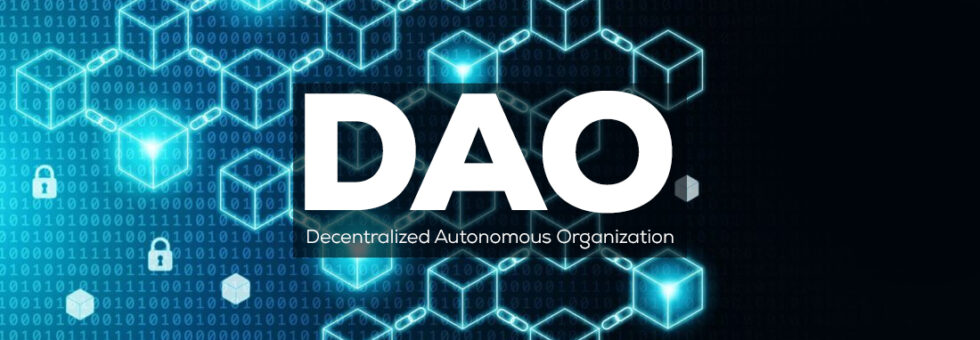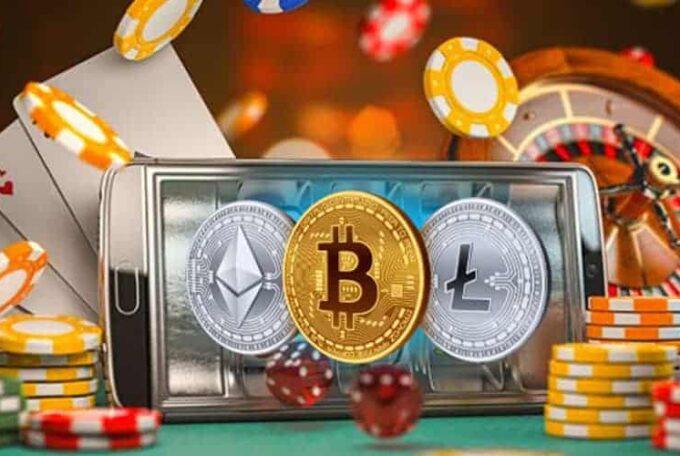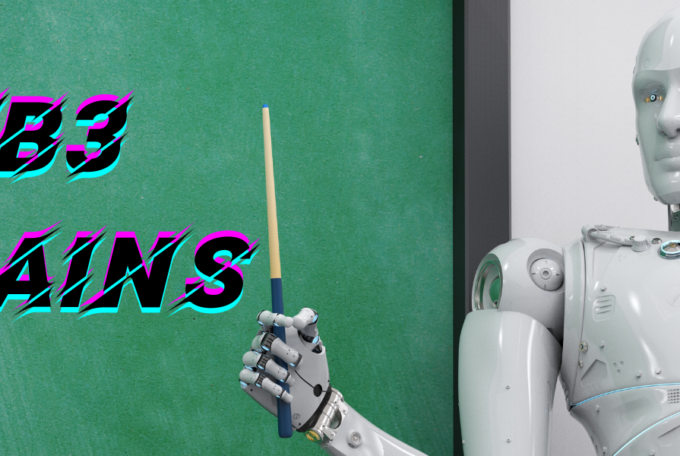Introduction: What’s a DAO?
The Decentralized Autonomous Organization, or DAO, is an emerging organization model that is gaining popularity. The basic idea behind a DAO is that it uses Smart Contracts to automate certain actions. Smart Contracts are computer-generated agreements that can execute themselves automatically.
Imagine a corporation, composed of people and code; the combined actions of all people on all software releases form the motivation for actions of the DAO.
The Basics
The basic premise of DAOs, is that they are organizations whose rules are embodied in computer code, and thus implemented automatically.
A DAO doesn’t have any management structure – it’s controlled by its members. These members govern the corporation through voting on proposals they submit to the smart contract.
As opposed to traditional corporations and cooperatives, where shareholders elect managers who make decisions on their behalf, in a DAO all decision-making power is vested in its members who then vote on what proposals should be implemented or not.
The History: The First DAO
In 2016, the first Decentralized Autonomous Organization (DAO) was created. It was a decentralized investment fund that raised over $100 million in ether through cryptocurrency crowdfunding. The DAO had no central authority and was designed to operate as a leaderless business owned by shareholders who needed to approve major decisions by voting.
In May 2017, at least one hacker generated tokens from The DAO’s smart contract using an exploit that allowed him or her to steal about $50 million worth of ether from the fund. This event caused a great deal of panic among cryptocurrency users, but it also led some people to believe there were flaws in how these projects were being created and operated.
What DAOs Can Do
DAOs can be used to manage and fund a wide variety of projects. Some examples include:
- Managing an investment fund that invests in companies
- Running an online marketplace where buyers and sellers negotiate directly with each other without the need for a middleman like Amazon or eBay
- Operating a Decentralized Autonomous Charity (DAC) that accepts donations from users around the world, who then use their tokens to vote on which causes they want their money to go towards
Advantages of Using DAOs Over Traditional Organizations
- There are no CEO salaries or executive bonuses, so all profits go back into growing the company and investing in more projects!
- Since there’s no board of directors or centralized management structure, decisions about how best to spend funds are made by all token holders – not just a select few executives with interests that do not always align with those who work at lower levels within companies. This reduces mismanagement, corruption and wastefulness typically seen in traditional businesses whose stakeholders don’t have much say in how things operate day-to-day (or at least can’t do anything about it)
This means that DAOs are more transparent and accountable than traditional organizations, which can be problematic when it comes to making strategic decisions that affect many different people in different ways.
DAOs also have more flexibility than traditional companies, since they are not bound by rules or regulations. They can be set up to operate in any country and across borders, which makes them ideal for businesses that want to expand into new markets but don’t want to deal with the legal headaches of doing so.
How will DAOs follow the law?
“Breaking the law” might come off as extreme, but if you’re not registered as a legal entity, you’re essentially not recognized by governments. And if governments don’t recognize you and your organization doesn’t follow any specific regulations? Well then…
For a traditional company or organization, for-profit or nonprofit, large or small, one of the first things to do is create a legal entity for the organization.
There are three types of legal entity: sole proprietorship, partnership, and corporation (including a general partnership).
The problem is, if a group of people engages in a common enterprise without a legal entity—whether they call themselves a DAO, a company, a commune or anything else—the law treats them as a general partnership.
What’s so bad about being a general partnership?
There are three main problems.
- In a general partnership, the individuals involved are each liable for the organization’s actions and the actions of other individuals involved. So, If something goes wrong with a DAO, the other members of the organization can easily sue you as an individual member and go after your money, your home, and everything that you own.
- General partnership is not treated as a person in the eyes of the law – i.e., it has no corporate personhood. This meanswhich means it cannot sign contracts, open bank accounts, buy and own property or hire employees. Therefore, most DAOs will have to be incorporated as a C-Corp, LLC or S-Corp.
- In General partnerships and so in DAOs ,the individuals involved in the DAO are personally liable for taxes on those earnings. If you own 10% of a DAO, you pay taxes on 10% of the organization’s profits. you don’t want to pay taxes on the increased value of your organization when it earns money! Most people have not realized this yet.
Most DAOs (all of the unincorporated ones), whether they know it or not, have all three of these problems. They do not require their members to pay their share of taxes on the DAOs’ earnings. Therefore, it is just a matter of time before the tax man (U.S. Internal Revenue Service or otherwise) comes for them and finds that the DAO members owe taxes they have not been paying.
So, how can DAOs follow the law?
In early 2021, there were no good options available for DAOs to incorporate. Individual states or countries only offered legal entities that would have required DAOs to compromise their governance structure.
In 2022, however, a new option emerged for DAOs. Today, DAOs can choose to engage with governments and legal systems, and several jurisdictions now recognize the newest evolution of human organization. Wyoming in the United States and the Republic of the Marshall Islands have created DAO LLCs which are highly flexible and powerful legal entities custom-made for DAOs with all the benefits of traditional LLCs. Additionally, Colorado Limited Cooperative Associations (LCA) and Unincorporated Nonprofit Associations (UNA) have been used with success by some DAOs and others have chosen to create foundations in Switzerland, the Cayman Islands or the British Virgin Islands.
Since the beginning of this year, hundreds of DAOs have incorporated in these jurisdictions, giving them access to banking, protecting members from liability and enabling them to pay taxes. In fact, for nonprofit organizations, incorporating usually means paying no income taxes at all.
Does following the law reduce decentralization?
The primary concern DAO members have when considering incorporation is whether it makes their DAO less decentralized, thus going against a core value of Web3. The thinking goes that having a legal entity creates one point of failure that is less censorship resistant than an unincorporated DAO. Consider, however, that the purpose of the entity is to create a liability target for anyone who wants to sue the DAO. If the legal entity is ever sued and drained of funds or forced out of business, that does not mean that members of the DAO will lose their tokens or governance smart contracts. Having an entity does not create a target where there was none before; it just moves the target away from members as individuals.
Another benefit of a legal entity is that its governance documents, such as bylaws and operating agreements, can be used to legally require the organization to be decentralized in governance and operations. An unincorporated DAO has no such recourse if a small group of individuals or a powerful third party accumulates too much power and effectively centralizes the organization.
In the past year, the crypto community has learned that no matter how trustworthy something appears, centralized entities can be co-opted and human greed can lead to undesirable outcomes. Hopefully, the wakeup calls from Celsius Network and FTX have shown the need for DAOs to decentralize assets and decision-making, which will lead to a renaissance in DAOs. With accelerating investment in DAO tooling and the legal system becoming more familiar with DAOs, DAOs will become leaner and more efficient and be as frictionless to participate in during normal days as checking your Discord messages. One way to get to this next level is to make the necessary handshake with the existing legal system so that DAOs can mature and integrate with the rest of global economy. Doing so does not require a compromise in decentralization and can serve as a means by which 2023 will become the year of the DAO.
Large Corporations Are Working on Their Own Version of a DAO
You would think that large corporations would be happy with their traditional corporate structure, but it turns out they’ve been taking notice of blockchain technology and are working on their own version of a DAO. One such example is Walmart, which has filed for patents for a blockchain-powered supply chain management system that tracks food items from farm to fork.
Another example is Microsoft Azure Global Blockchain Council (GBBC), which was formed in March 2018 to provide guidance on the best practices for building enterprise-grade applications using blockchain technologies. In addition to providing guidance, they also offer open-source tools and software frameworks to help developers create their own DAOs. Although it’s still early, we can expect to see more and more large corporations follow suit with their own DAOs. As they do so, what will be even more interesting is to watch how these DAOs evolve over time. Will they become autonomous entities that operate independently from their parent companies or will they remain under centralized control? And if so, does this create a moral dilemma for those who believe in decentralized governance models?
What DAOs Can’t (or Shouldn’t) Do
DAOs can’t be used to avoid regulations. A DAO is a distributed entity that has no central authority and exists on a blockchain. It does not exist in the physical world; it only exists as code on a blockchain. If you want your organization to have legal status, you will still need a traditional company structure with an actual address and employees who can sign contracts with others (including customers).
DAOs also cannot avoid taxes, regulations, or liabilities by designating themselves as such; they’re just organizations built on top of blockchain technology, and so they must follow all applicable laws, including those governing tax filings and regulatory compliance.
DAOs are also not “immutable” because they can be hacked by an entity that has gained control of more than 50% of its tokens. If this happens, the DAO will have to be forked (as was the case with The Dao).
For these reasons, DAOs are not suitable for every company. If you have a simple idea that requires no legal structure, then a DAO may be a good fit. But if your business is complex and requires legal status, then it’s probably best to use traditional companies instead of DAOs – at least until the latter becomes more established in the industry.
Why You Should Join a DAO
DAOs are a great place to learn new skills, make a difference in the world and help others. The benefits of joining a DAO include:
- Learning new things. The world is changing, and you can be part of it! Joining a DAO will allow you to explore new ways of working with other people from all around the globe, learning how to use cutting-edge tools like Slack or Github
- Making money by doing what you love! You can also earn income by doing what you love within your community or team. For example, if you’re good at graphic design maybe you can find someone who would like some help with their website design? Or perhaps there’s another area where your expertise could be useful?
- Helping others (and getting paid for it). If there is anything that motivates us humans more than money it’s helping other humans! By contributing towards something bigger than ourselves we feel happier and more fulfilled as individuals but also have something positive to show for all our hard work when looking back on our lives at 80 years old: “I helped build that!”
- Building something greater than yourself. The world is changing and DAOs are a part of that change, helping to create new ways of working together. By joining a DAO you will have the opportunity to be part of this global movement and help shaping it for the future
You will have the opportunity to earn rewards for your contribution and participate in decision making. So instead of asking yourself “what can I do to make money”, ask yourself “what can I do that is valuable?”.
If you can answer that question then you are on your way to becoming a valuable member of a DAO community.
Which DAO You Should Join Today
There are many DAOs out there, but not all of them are good. You should probably do some due diligence before deciding which one is right for you.
There are plenty of opportunities to get started with DAOs today:
- A DAO for Creators – If you’re an artist or a writer looking for funding to produce new work, check out Littera Artium or Poetry Chain as possible options. Mirror.xyz is a DAO for writers who are looking to find alternative ways to publish their work. The project uses the WRITE token for those who wish to propose their projects to the DAO and have them distributed
- A DAO for Freelance Workers – There are plenty of groups online where people come together in order to crowdfund each others’ projects; Braintrust aims to be such a DAO where freelance workers can have a say on how the platform works. The project takes fewer fees than similar centralized platforms and allows members the ability to change how the platform operates and how much it charges
- A DAO for Investors – The first DAO was a decentralized VC fund, and even though it failed, there are others following its footsteps. Launchpads are the new name for a decentralized VC fund and many of them are looking to become DAOs and allow their community to decide who gets funding. MaticPadis one example. It is a launchpad on the Polygon Network that aims to provide new crypto projects with funding, access to investors, and business advice. They launched this year, and some of the platform’s features are still under development. But it’s an interesting early project to adopt
- A DAO for Charities – Want to help people in need by giving them access to food, shelter and education? Try out Giveth for example; A project to support the needy through blockchain technology
- A DAO for Social Projects – Want to bring blockchain technology directly into the hands of those who need it most? Try out Solana; A project that is actively working on bringing blockchain technology to developing countries in order to help them catch up with the rest of the world
- A DAO for Developers – Want to develop DApps but don’t know where to start? Try out Polkadot – a project that is actively working on creating the infrastructure necessary for developers to build decentralized applications
- A DAO for Gamers – Another vibrant sector of the economy is gaming. Collectively the gaming industry is bigger than television, movies, and music. It is one of the industries most eager to adopt crypto, and there are some meaningful projects in the area. DAOs are also making their mark here.
- Yield Guild Games is an example of a gaming project that adopts crypto. It uses the play-to-earn model to incentivize participation, and also has adopted NFTs as a way to distribute collectibles
The Future of DAOs
There’s a lot to learn about DAOs, but it should be clear by now that they’re here to stay. Their decentralized nature makes them ideal for solving many problems and providing new solutions in the future.
One area where DAOs will likely become increasingly popular is freelancing platforms. If you’re a freelancer, you can choose which DAO you work for and how much time you want to devote yourself to it each day or week. This freedom will likely appeal greatly to professional workers who are tired of being tied down by traditional employment models or simply want more flexibility in their schedules while also earning money online through projects they enjoy doing!
As more people come to realize the benefits of DAOs, we expect to see more freelancing platforms adopt this model. It’s likely that we’ll even see entirely new kinds of freelancing websites emerge in the future that are specifically designed around a DAO structure.
Final Thoughts
DAO is a collection of people with a passion for the art of value creation who want to escape the limitations of the traditional ways of companies, governments and organizations. DAOs offer a new way of value creation by eliminating the need for management, reduce fraud, increase transparency, avoid bureaucracy and give everyone who is interested in listening on the market an opportunity to actively participate in decision making.
DAOs are still a relatively new concept, and we’re still finding new ways to use them. But with their flexibility and the growing potential for collaboration, DAOs could be the future of autonomous organisations. They’ll allow us to move freely from project to project, with the freedom to decide how each one will operate without restraints, corruptions or red tape holding us back.
This is an exciting time for DAOs and the future of projects built on Ethereum. It’s all still in its infancy, so we can expect to see many iterations of the DAO model, including new innovations packaged in a DAO framework. I’d encourage everybody to give DAOs a chance and experiment with different versions. Today is your chance to join and be part of something bigger.




